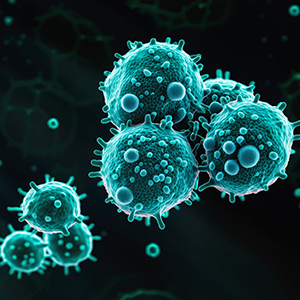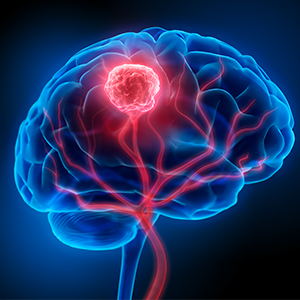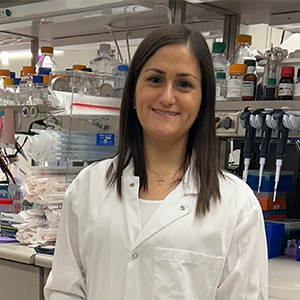-
Mayo Clinic investigators pursue every clue to solve patients’ rare diseases

When patients' illnesses are a mystery and their symptoms have defied a diagnosis, they often turn to Mayo Clinic. There a team of genomic-oriented clinicians and researchers within the Center for Individualized Medicine pursue every possible clue to solve these complex cases.
As many as 30 million Americans have a rare disease. Many patients search an average of eight to 10 years for answers, while being propelled through a marathon of health care provider visits and tests. Rare diseases are chronic, debilitating and even deadly.
Over 80% of rare diseases are caused by genetic variations that can strike at any age. This makes them a prime candidate for in-depth genetic testing, given technological advances of DNA sequencing.
Feb. 28 has been designated Rare Disease Day to raise awareness that, collectively, rare diseases are relatively common.
Focusing on patients' genetic data to solve mysterious illnesses
"Rare is not rare to us," says Konstantinos Lazaridis, M.D., who directs the center's Program for Rare and Undiagnosed Diseases. "Mayo Clinic has over 3,800 researchers who relentlessly pursue discoveries that will deliver hope and better health to people today and for generations to come."
The Program for Rare and Undiagnosed Diseases, which launched in April 2019, builds on Mayo Clinic's decades of work to provide diagnoses, treatment and care for patients with rare diseases. Using sophisticated genomic and multiomic testing and sequencing, along with worldwide research, the program has successfully unveiled a genetic cause for an undiagnosed patient in more than 25% of cases.
"Rare is not rare to us. "Mayo Clinic has over 3,800 researchers who relentlessly pursue discoveries that will deliver hope and better health to people today and for generations to come." - Dr. Lazaridis
"For patients who do not receive an initial diagnosis, we never give up," says Filippo Pinto e Vairo, M.D., Ph.D., the program's medical director.
Dr. Pinto e Vairo is involved in investigating nearly every patient's rare disease case that comes through the program. It starts when a Mayo provider suspects a patient's confounding symptoms could be caused by a genetic variant.
"First, we develop a test called a multigene panel that analyzes a set of genes at once to look for variations," Dr. Pinto e Vairo explains. "So, for example, if the patient's illness is related to kidney failure, instead of looking at the 20,000 genes, we can start with a focused analysis and look at 300 to 400 genes that are broad in scope but highly expressed in the kidney."
When the clinical genetic report is complete, revealing any genetic variants, Dr. Pinto e Vairo and his team scour the data.
"In this report, there could be a handful of genetic variants, but often, there are variants of undetermined significance," Dr. Pinto e Vairo says. "So our job is to make sense of these clinical results."
"For patients who do not receive an initial diagnosis, we never give up." - Dr. Pinto e Vairo

After a thorough investigation, which sometimes includes comparing genetic data to other patient cases with similar symptoms and variants, Dr. Pinto e Vairo and his team of genetic experts meet with the patient's providers.
"We discuss these data, we review the results and then we propose next steps," he says. "Sometimes that means more clinical tests, more comprehensive genetic testing or even research options."
Throughout the process, genetic counselors provide the patient with ongoing education and information about their genetic data.
For patients who receive a diagnosis, the results can be life-changing, or even lifesaving, including for their family members, who may also carry the genetic variant. A diagnosis is key to determining a potential treatment — usually an existing drug that is used to treat another condition.
"I chose to be a medical geneticist because I want to help these patients and make a difference in their lives," Dr. Pinto e Vairo says. "It's very difficult to treat most of these patients and change the disease course, but that's what makes me want to work for them, look after them and try to at least relieve some of their symptoms."
Rare disease biobank serves as critical research arsenal
For patients who come away without a treatment or diagnosis, the program's work continues.
"Our Program for Rare and Undiagnosed Diseases is more than just clinical. This is an innovative research program of discovery, science and technology," says Carri Prochnow, program manager.
To advance discoveries, Prochnow says the program launched a rare disease biobank to be a critical research arsenal for genetics scientists to study and compare variants and patient data.
"The hope is, as cohorts of patients with similar phenotypes are obtained, our researchers could help solve those rare disease cases by identifying the genetic mutations causing the disease and provide answers to patients whose cases have not yet been resolved," Prochnow says.
"Our Program for Rare and Undiagnosed Diseases is more than just clinical. This is an innovative research program of discovery, science and technology." - Carri Prochnow
Prochnow says the program evaluated 150 patients in 2020 and opened 14 rare disease clinics across multiple subspecialty practices at Mayo Clinic's campuses in Arizona, Florida and Minnesota, with plans to open 10 more in 2021.
"I'm passionate about helping our patients, and I want this program to be a place where people come to find answers because they know that we will do everything possible to help them," says Prochnow.
Her sentiment is shared by many who work in the program.
Elizabeth Burke, an associate clinical research coordinator, often connects with patients and their families when research follow-up is possible to help solve a case. She does the same when research follow-up is not possible.
"We all have the same goal in mind, and that's advancing patient care," Burke says. "These patients are so inspiring, and they've been through so much. Not everyone gets an answer, but we're making sure these rare diseases are studied and known in hopes of resolving more cases in the future.
Learn more
Read more stories about advances in individualized medicine.
Register to get weekly updates from the Mayo Clinic Center for Individualized Medicine blog.
Join the conversation
For more information on the Mayo Clinic Center for Individualized Medicine, visit Facebook, LinkedIn or Twitter at @MayoClinicCIM
Related Articles







